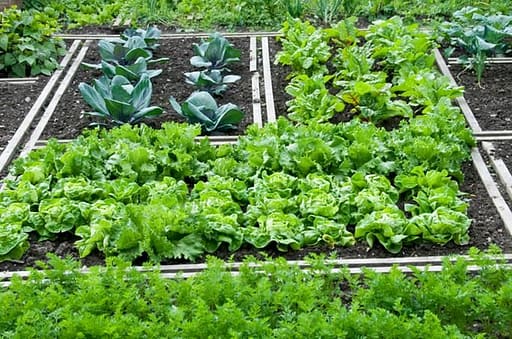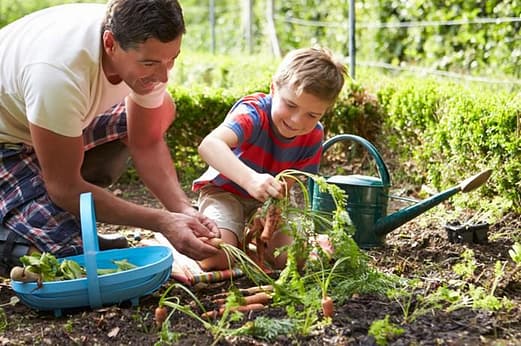
Do use good soil. We upgraded most of our soils to organic mixes this year, and our favorite for veggies is Black Gold® Natural and Organic Flower and Vegetable soil. It’s formulated for fast-growing plants like veggies that need to do their work quickly, in a matter of a few months, rather than years like shrubs and trees. Florida soil is notoriously poor, so you won’t have much success in our native soils.
Don’t overcrowd plants. It’s easy to get excited and put too many plants too close together. Each plant needs room to spread out. This space makes it easier to harvest and reduces disease issues, especially during humid months.
Do water regularly. Planting time is exciting. You’ve set aside the day to dig, sweat, and plant. But after you’ve planted make sure you have a plan to water regularly. A typical watering schedule starts with daily for the first month (always in the morning), every other day in the second month and then twice weekly in the third month. Water amounts will increase each week as plants grow. Regular watering is critical for veggie success.
Do water deeply. Watering regularly by spraying a little liquid on leaves and then moving on won’t do plants any good. They need water at their roots and enough to penetrate down to encourage new roots to follow. Strong plants will establish when a strong root system is encouraged. That starts with deep watering.

Don’t plant in the shade. Veggies want at least 6 hours of sunlight each day and more is better. Lots of sunlight means plants can produce lots of food for themselves (you remember photosynthesis, right?) and in turn lots of food for you.
Do start with what you can manage. Don’t plant so much that you can’t take care of it. Start small and build your garden up as you gain more experience.
Don’t plant out of season. February, March, and April for spring gardens and September and October for fall gardens. You can push it a little on each side of those ranges, but planting in mid-summer or winter is a sure way to have a mediocre garden.

Do check for bugs regularly. We call it scouting, and it’s a fun way to enjoy your garden. Step one is to pour your favorite morning beverage into your favorite mug. Now, put on your garden boots and go out and take a look at your garden. In the morning, you’ll spot pests if they are active and can begin a treatment plan before things get out of hand.
Do enjoy your garden. You’ll get to feast on the fruits of your labor, but don’t forget to enjoy all of the garden moments along the way. Watching something grow that you planted is medicine for the soul, and the healthy veggies you eat are great for your body. It’s hard to think of a better way to spend your time.
